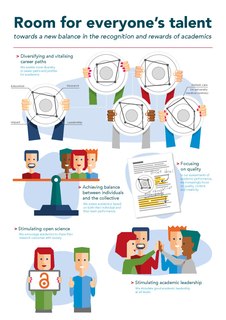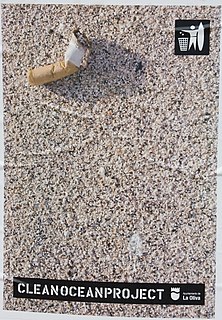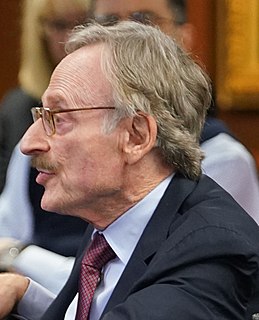Related Research Articles

Hong Kong, officially the Hong Kong Special Administrative Region of the People's Republic of China, is a city and special administrative region of China on the eastern Pearl River Delta in South China. With 7.5 million residents of various nationalities in a 1,104-square-kilometre (426 sq mi) territory, Hong Kong is one of the most densely populated places in the world. Hong Kong is also one of the three global financial centres and one of the most developed cities in the world.
Politics of Macau is a framework of a politically constrained multi-party presidential system, dominated by the People's Republic of China. It includes the legislature, the judiciary, the government, and a multi-party system. Executive power is exercised by the government, led by the Chief Executive.

A think tank, or policy institute, is a research institute that performs research and advocacy concerning topics such as social policy, political strategy, economics, military, technology, and culture. Most think tanks are non-governmental organizations, but some are semi-autonomous agencies within government or are associated with particular political parties, businesses or the military. Think-tank funding often includes a combination of donations from wealthy individuals and personal contributions, with many also accepting government grants.
In politics, soft power is the ability to co-opt rather than coerce. In other words, soft power involves shaping the preferences of others through appeal and attraction. A defining feature of soft power is that it is non-coercive; the currency of soft power includes culture, political values, and foreign policies. In 2012, Joseph Nye of Harvard University explained that with soft power, "the best propaganda is not propaganda", further explaining that during the Information Age, "credibility is the scarcest resource".

Science policy is concerned with the allocation of resources for the conduct of science towards the goal of best serving the public interest. Topics include the funding of science, the careers of scientists, and the translation of scientific discoveries into technological innovation to promote commercial product development, competitiveness, economic growth and economic development. Science policy focuses on knowledge production and role of knowledge networks, collaborations, and the complex distributions of expertise, equipment, and know-how. Understanding the processes and organizational context of generating novel and innovative science and engineering ideas is a core concern of science policy. Science policy topics include weapons development, health care and environmental monitoring.

Environmental protection is the practice of protecting the natural environment by individuals, organizations and governments. Its objectives are to conserve natural resources and the existing natural environment and, where possible, to repair damage and reverse trends.
The Chinese Immigration Act of 1885 was a Canadian Act of Parliament that placed a head tax of $50 on all Chinese immigrants entering Canada. It was based on the recommendations published in the Royal Commission on Chinese Immigration in 1885. Assented on 20 July 1885, the intention of the Act was stated explicitly in its heading: "to restrict and regulate Chinese immigration into Canada." It followed the U.S. Chinese Exclusion Act, which was passed in 1882.

Michael Jay Boskin is the T. M. Friedman Professor of Economics and senior Fellow at Stanford University's Hoover Institution. He also is chief executive officer and president of Boskin & Co., an economic consulting company.

The Elliott School of International Affairs is the professional school of international relations, foreign policy, and international development of the George Washington University, in Washington, D.C. It is highly ranked in international affairs and is the largest school of international relations in the United States.

Cultural policy is the government actions, laws and programs that regulate, protect, encourage and financially support activities related to the arts and creative sectors, such as painting, sculpture, music, dance, literature, and filmmaking, among others and culture, which may involve activities related to language, heritage and diversity. The idea of cultural policy was developed at UNESCO in the 1960s. Generally, this involves governments setting in place processes, legal classifications, regulations, legislation and institutions which promote and facilitate cultural diversity and creative expressions in a range of art forms and creative activities. Cultural policies vary from one country to another, but generally they aim to improve the accessibility of arts and creative activities to citizens and promote the artistic, musical, ethnic, sociolinguistic, literary and other expressions of all people in a country. In some countries, especially since the 1970s, there is an emphasis on supporting the culture of Indigenous peoples and marginalized communities and ensuring that cultural industries are representative of a country's diverse cultural heritage and ethnic and linguistic demographics.
Pan Yue is a Chinese government official who is the current director of Overseas Chinese Affairs Office, and was formerly the Executive Vice President of the Central Academy of Socialism in Beijing, China. He is recognized as an environmental activist who led notable campaigns to underscore the intensity of climate change by challenging the main constituents of air pollution and greenhouse emissions. As a former official of the Ministry of Environmental Protection (MEP) and the State Environmental Protection Administration (SEPA), he continues to advocate for the advancement of technology and resources to address environmental issues. In 2003 Pan would become the number one deputy director at the State Environmental Protection Administration (SEPA) which would then go on to become the Ministry of Environmental Protection. In August 2015 Pan served as deputy secretary of the Ministry of Environmental Protection, a position that had been empty since 2007. Pan would later leave this position to serve as the Executive Vice president of the Central Academy of Socialism. Pan would additionally go on to become an alternative member of the 19th Chinese Communist Party (CCP)'s Central Committee. In a 2021 leadership update put forth by the official website of the United Front Work Department of the CCP Central Committee, Pan Yue was revealed to have succeeded Xu Yousheng a former sent-down youth of the Cultural Revolution and head of the Overseas Chinese Affairs Office. With this Pan Yue became the current acting director of the Overseas Chinese Affairs Office of the State Council, and deputy director of the United Front Work Department of the CCP Central Committee

Food safety in China is a concern relating to agriculture in the world's most populated country. China's principal crops are rice, corn, wheat, soybeans, and cotton in addition to apples and other fruits and vegetables. China's principal livestock products include pork, beef, dairy, and eggs. The Chinese government oversees agricultural production as well as the manufacture of food packaging, containers, chemical additives, drug production, and business regulation. In recent years, the Chinese government attempted to consolidate food safety regulation with the creation of the State Food and Drug Administration of China in 2003; officials have also been under increasing public and international pressure to solve food safety problems. Chinese Vice Premier Li Keqiang said, "Food is essential, and safety should be a top priority. Food safety is closely related to people's lives and health and economic development and social harmony," at a State Council meeting in Beijing.

The Carbon Pollution Reduction Scheme was a cap-and-trade emissions trading scheme for anthropogenic greenhouse gases proposed by the Rudd government, as part of its climate change policy, which had been due to commence in Australia in 2010. It marked a major change in the energy policy of Australia. The policy began to be formulated in April 2007, when the federal Labor Party was in Opposition and the six Labor-controlled states commissioned an independent review on energy policy, the Garnaut Climate Change Review, which published a number of reports. After Labor won the 2007 federal election and formed government, it published a Green Paper on climate change for discussion and comment. The Federal Treasury then modelled some of the financial and economic impacts of the proposed CPRS scheme.

The United Nations Department of Economic and Social Affairs is part of the United Nations Secretariat and is responsible for the follow-up to major United Nations Summits and Conferences, as well as services to the United Nations Economic and Social Council and the Second and Third Committees of the United Nations General Assembly. UN DESA assists countries around the world in agenda-setting and decision-making with the goal of meeting their economic, social and environmental challenges. It supports international cooperation to promote sustainable development for all, having as a foundation the 2030 Agenda for Sustainable Development and the 17 Sustainable Development Goals (SDGs) as adopted by the UN General Assembly on 25 September 2015. In providing a broad range of analytical products, policy advice, and technical assistance, UN DESA effectively translates global commitments in the economic, social and environmental spheres into national policies and actions and continues to play a key role in monitoring progress towards internationally agreed-upon development goals. It is also a member of the United Nations Development Group.

The Centre for Policy Research (CPR) is an Indian think tank focusing on public policy. Established in 1973 and located in New Delhi, it is one of the national social science research institutes recognized by the Indian Council of Social Science Research (ICSSR).
Development Research Center of the State Council of China is a public institution responsible for policy research, strategic review and consulting of issues related to the economic and social development on mainland China.
Yamini Aiyar is President and Chief Executive of the Centre for Policy Research (CPR), New Delhi, a public policy research think tank. She was appointed President of CPR in 2017. She was previously a senior research fellow and founder, in 2008, of the Accountability Initiative (AI) at the centre. Through Accountability Initiative, Yamini is credited with pioneering one of India’s largest expenditure tracking surveys for elementary education. She is also regular columnist in newspapers, such as The Hindustan Times, LiveMint, and The Indian Express'.

The Arctic policy of the United States is the foreign policy of the United States in regard to the Arctic region. In addition, the United States' domestic policy toward Alaska is part of its Arctic policy.
Unirule Institute of Economics was a Beijing-based Chinese think tank established in 1993. Unirule conducted research and education in social sciences, primarily in economics, governance, policy, and culture. Unirule was dedicated to the open exchange of ideas in economics in general, with a particular focus on institutional economics. In the University of Pennsylvania’s 2012 Global Go To Think Tanks Report, Unirule ranked 14th in the category of “Best Think Tanks with an Annual Operating Budget under $5M USD”. In August 2019 the institute announced that it would be closing down due to governmental pressure.